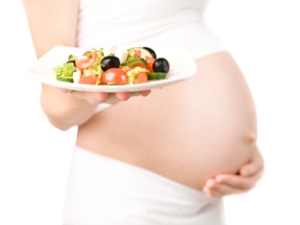Food during Pregnancy

Pregnancy can be a bigopportunity for changes to good eating habits, since this factor has been proven to be essential for the full development of the baby in intrauterine life, after birth and even for the rest of his life. The mother will also be able to ensure healthy weight gain, avoid hypertension, gestational diabetes, gastrointestinal problems, allergies, weakening of the immune system, loss of energy and other complications. However, it is also essential that the diet is personalized, taking into account several factors such as: mother's age, number of pregnancies, mother's and family history, pre-gestational weight, signs and symptoms, use of medications and dietary supplements, activity level, among others. In this way, all the benefits of a healthy diet for mother and child can be maximized. These foods listed below should generally be present on the pregnant women's menu, with due reservations for anyone who shows signs of intolerance or allergenicity to any of them.
Main Nutrients in Pregnancy and food sources:
-
Whole grains: They are rich in fiber, B vitamins that, in addition to helping with the neurological formation of the fetus, contribute to the mother's good shape as they are rich in fiber, control anxiety and provide energy.
-
Fruits, Vegetables and Vegetables: source of fructose (fruit sugar), fiber, water, vitamins and minerals, fruits are essential to ensure regular functioning of the mother's body, improve intestinal transit, strengthen the immune system, be antioxidants, and, best of all, that these benefits are passed on to the baby.
-
Grains, dark green vegetables: They are sources of folic acid, calcium, antioxidants, B vitamins. It is essential in the development of the fetal neural tube, especially in the first trimester of pregnancy. In addition to these benefits for the baby, grains (beans, soybeans, peas, lentils) contain tryptophan, an amino acid that helps regulate anxiety, preventing binge eating and giving a greater feeling of relaxation and satiety.
-
Milk and derivatives: Calcium is essential for the fetus in the development of bone and structural parts. These are protein foods that offer greater satiety, accelerate metabolism and help keep pregnant women in good shape. Always opt for the skimmed and/or soy versions (soy milk, tofu).
-
Fish, oilseeds: rich in omega-3, salmon, sardines, chestnuts, flaxseed, olive oil are powerful antioxidants that help strengthen the immune system, prevent cellular aging, and allow for better transmission of nerve impulses. For the fetus it is very important for cell formation and neurological functioning. It can help keep the mother in good shape as this type of fatty acid provides more satiety, helps with hydration and modulates nerve impulses.
-
Foods that should be avoided during pregnancy:
Coffee, alcoholic beverages, refined sugar, sweeteners (except sucralose, stevia and agave), raw fish, raw meat, sausages, soft drinks, refined foods (bread, cookies, snacks), concentrated broths and industrialized condiments, powdered juices, preparations that contain artificial preservatives and colorings (candy, gelatin, gum, toppings), sweets, foods with saturated and trans fats, including fried foods.
